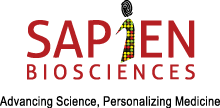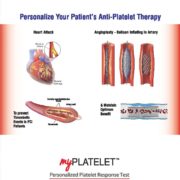Sapien collaborates with Boston University to perform cost-benefit analysis of treatment paradigm in PCI Stent patients in the Indian healthcare system
Sapien is collaborating with Dr. Joglekar’s group at Boston University to mine Sapien’s cardiac patients database. Our goal is to jointly analyse patterns of usage of different stents, blood thinning medicines, co-medications, myPlatelet assay , follow-up visits and monitoring with an eye towards optimizing implementation of personalized treatment to improve patient outcomes.
Over the last three years, Sapien Biosciences, working with leading cardiologists Dr. PC Rath and Dr. PK Sahoo at Apollo Hospitals, and Dr. A Yerramilli at SV College of Pharmacy, have collated a detailed dataset of approximately 800 coronary artery disease patients who underwent a PCI-stent procedure. These patients were prescribed various anti-platelet therapies (APTs), branded or generic versions of clopidogrel, prasugrel, ticagrelor, as part of their maintenance regimen for a year or more to prevent restenosis. About half of these patients also took Sapien’s myPlatelet test (myPlatelet brochure), a combination genetic and functional test, to check the effectiveness of the APTs they were prescribed. These ~800 patients have been followed up for a year to determine the success of their treatment regimens and document any significant adverse events. This rich dataset is being used to perform cost-benefit analysis of different treatment paradigms in the Indian healthcare delivery context.
Appropriate ethical IEC/IRB clearances have been taken by each party to share de-identified data. These analyses are expected to be published and pave the way for additional studies including assessing the impact of patient engagement in improving outcomes.
myPlatelet test is a combination of genetic profiling for the presence of common variants of CYP2C19 gene that affect the bioavailability of clopidogrel , and a platelet function test for evaluating platelet reactivity. It is highly specific and sensitive compared to the commonly used Light Transmission Aggregometry (LTA), and correlates well with the plasma levels of anti-platelet medication. It is able to detect high risk of thrombosis or blood clotting as well as excessive bleeding. The value of this assay in preventing post-procedural major adverse cardiac events or MACE in patients who underwent PCI has been demonstrated in several studies world-wide as summarized in this publication.
Sapien is India’s largest commercial biobank, repurposing human medical waste to discover and validate clinically useful prognostics, diagnostics & theranostics to optimize the diagnosis and treatment of individual patients. It has curated over 55000 patients’ samples and associated data spanning most diseases plus access to more than 1.5 million healthy and diseased individuals. It follows Indian medical council (ICMR) guidelines and works closely with Institutional Ethics Committees to ensure ethical and regulatory compliance.
Dr. Nitin Joglekar is Associate Professor of Operations and Technology Management, and Dean’s Research Fellow, at Boston University Questrom School of Business. His interests span development of products, supply chains and customer engagement at established and entrepreneurial organizations.


Recent Comments